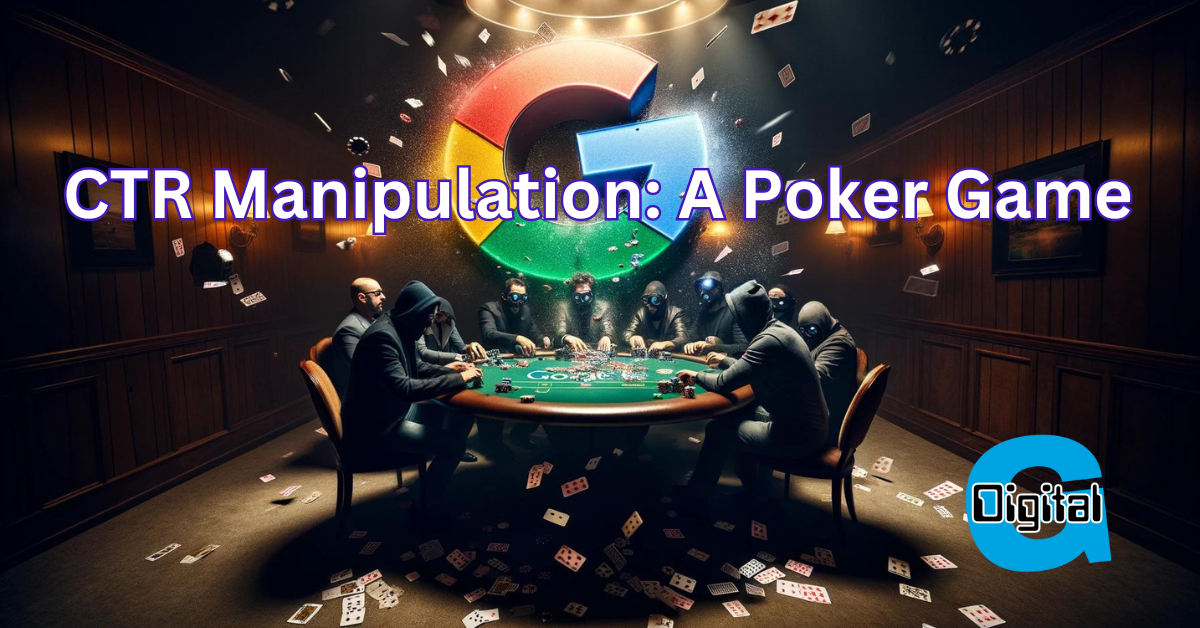Checking Out the Relationship In Between CTR Manipulation Providers and User Habits
In the realm of digital advertising and marketing, the influence of click-through price (CTR) manipulation services on customer behavior stays a complicated and interesting topic. As online platforms significantly depend on CTR metrics to determine the success of material, products, and solutions, comprehending exactly how these adjusted prices effect user involvement and decision-making procedures is paramount. The interplay between CTR manipulation and individual habits questions about authenticity, dependability, and the ethical effects of such practices. By dissecting the elaborate relationship between CTR manipulation services and individual actions, intriguing insights arise that may improve our understanding of electronic advertising and marketing techniques and their impacts on customers.
Effect of CTR Control on Behavior
Evaluating the impact of Click-Through Rate (CTR) manipulation on customer actions exposes important understandings into the characteristics of online involvement. CTR control involves unnaturally blowing up the variety of clicks on a certain web link or advertisement to trick customers and internet search engine. This technique can lead to a distorted understanding of a web page's popularity or significance, ultimately impacting customer habits.

Moreover, CTR adjustment can skew the information used by algorithms to individualize user experiences. This can lead to customers being served material that does not straighten with their choices or interests, eventually bring about a decrease in customer complete satisfaction and involvement. Understanding the impact of CTR control on individual behavior is vital for preserving openness and rely on online interactions.
Customer Interaction With Adjusted CTR
Customer involvement with adjusted CTR data commonly leads to manipulated perceptions of online content popularity and significance. When customers communicate with content based on artificially inflated Click-Through Rates (CTR), they may believe that specific information, products, or services are more popular or trustworthy than they in fact are. This can cause customers choosing based upon deceptive data, resulting in possibly unfavorable end results.
Interaction metrics like likes, shares, comments, and time invested in a page are frequently influenced by CTR adjustment. Customers might be a lot more inclined to involve with web content that shows up to have higher engagement prices, additionally continuing the cycle of manipulated assumptions. Consequently, material developers and marketers might prioritize generating web content that generates high CTR as opposed to focusing on developing genuinely valuable and her comment is here pertinent product.

Emotional Impacts of CTR Control

In addition, the psychological effects of CTR control can also show up in modified decision-making processes. Individuals may be much more inclined to click web content exclusively based on its regarded popularity, as opposed to its real value or pop over to this site relevance to their demands. This behavioral change can lead to a superficial engagement with on the internet material, where users might ignore premium yet less preferred offerings for those with synthetically increased CTRs.
In essence, the psychological implications of CTR control highlight the relevance of preserving openness and authenticity in on-line communications to foster real user involvement and trust.
Moral Considerations in CTR Adjustment
CTR adjustment elevates problems about deceiving customers, distorting data analytics, and compromising the trustworthiness of on the internet material. By artificially pumping up CTR, users may be deceived into clicking on web links or advertisements they would certainly not have actually selected otherwise, leading to an insincere online experience.
An additional honest element to contemplate is the justness of controling CTR to get an unreasonable benefit over competitors. Taking part in such practices not just breaches principles of reasonable play yet also weakens the depend on that users place in online systems. It is important for businesses and electronic marketing experts to maintain ethical requirements in their methods to ensure openness, credibility, and lasting sustainability in the on the internet environment.
Implications for Digital Advertising And Marketing
With the boosting reliance on electronic platforms for advertising and marketing purposes, the technique of controling click-through prices (CTR) positions substantial ramifications for the performance and stability of electronic advertising and marketing techniques. CTR adjustment can cause skewed data analytics, misdirecting marketers into believing that their campaigns are doing much better than they in fact are. This can lead to misallocation of sources, with companies purchasing underperforming methods based upon falsified CTRs. Furthermore, when customers recognize that CTRs have been controlled, it can deteriorate count on in the brand name, bring about long-lasting adverse consequences for customer loyalty and brand name track record.
In addition, making use of CTR manipulation solutions can create an unreasonable affordable landscape, where firms that take part in such methods gain a fabricated advantage over those that follow honest marketing criteria. This can stifle technology and creative thinking in electronic advertising, as success ends up being more concerning adjustment techniques than supplying authentic value Source to customers. Eventually, the implications of CTR adjustment for digital marketing expand past short-term gains, influencing the general sustainability and reputation of advertising efforts in the electronic realm.
Final Thought
To conclude, the relationship in between CTR control services and user actions is complicated and complex. The effect of CTR adjustment on behavior, user involvement with controlled CTR, psychological impacts, ethical factors to consider, and ramifications for digital advertising and marketing all play a function fit this connection. Understanding these characteristics is essential for online marketers and researchers alike in order to browse the ethical ramifications and optimize the effectiveness of their electronic advertising and marketing approaches.